A trip to Syria to meet falcon trappers and traffickers
Guest blog by Lyse Mauvais
In April 2023, I travelled to northeast Syria to meet falcon hunters and traders, a little over a year after publishing my first piece on falcon trafficking in Syria. I’m no ornithologist, but as a Syria-focused journalist I started following this issue in early 2022, after getting in touch with the resident of a remote displacement camp in southern Syria.
Every year, he and other men would leave the camp for weeks on end to trap peregrine and saker falcons, which are worth tens of thousands of dollars on illegal wildlife markets in the Gulf. After catching a bird, the trappers had to pay smugglers to take the birds to Damascus, where specialized traders would send them overland or by plane to their destination in the Gulf.
My contact was eager to talk about his passion: he loved to send me photos of the birds caught that fall, and to discuss the price of each, which varied according to its species and size. For several weeks, we exchanged texts and voice notes, and he put me in touch with other hunters. He thanked me for writing an article on them that year, and the following fall, he sent more photos of the season’s catch.
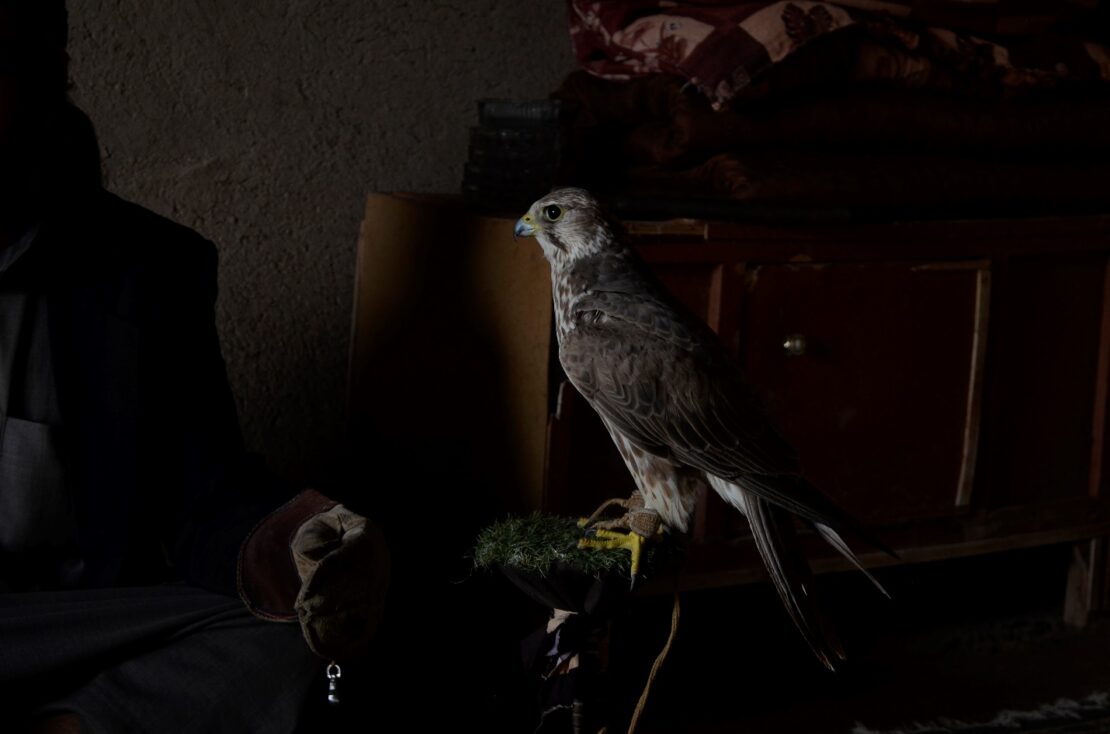
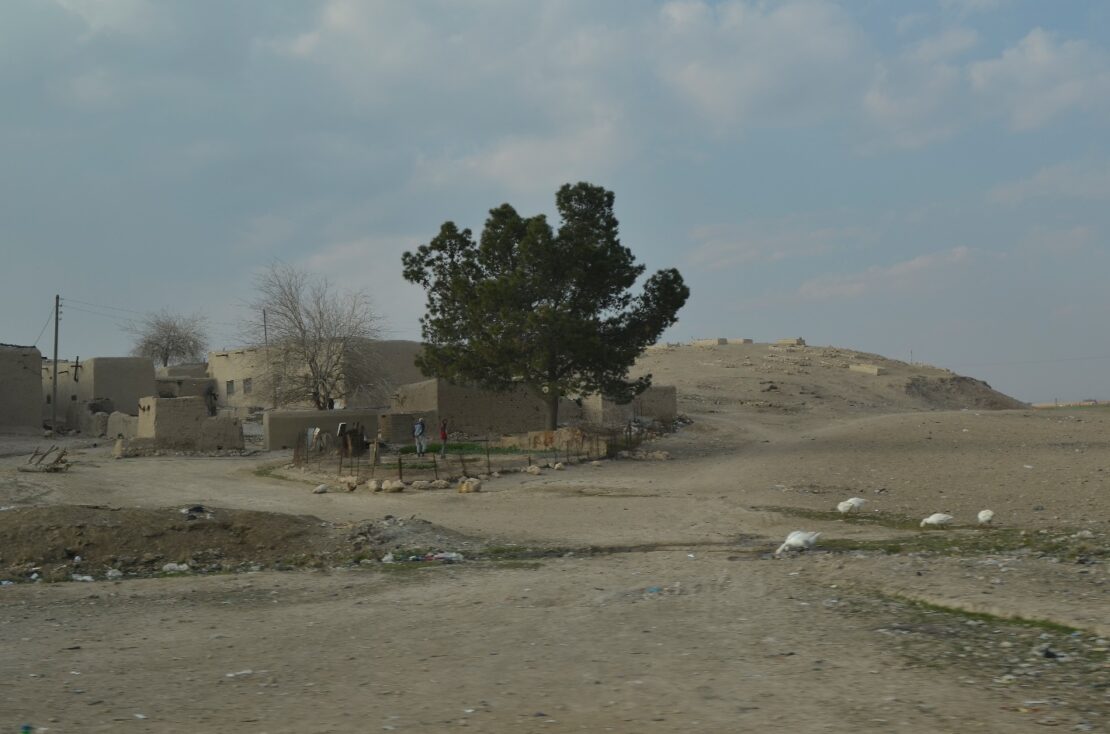
The more I learned about falcon-trapping, the more fascinated I became by the extraordinary resources that trappers and hunters mobilized to continue their trade in a country splintered by war. All the ornithologists I knew who had been to Syria before 2011 remembered that falcon-trapping was already astoundingly popular there. But from my own interviews, I understood that the practice was developing even further, mostly because the price of falcons had increased exponentially as the Syrian currency collapsed due to war and sanctions.
For various reasons linked to security, I could not travel to southern Syria to meet my contact, so I headed to northeastern Syria, which is comparatively safer and more accessible to researchers and journalists than the rest of the country.
With a Kurdish friend and colleague, we met several traders and trappers during that trip, including the head of a newly formed union of falcon hunters that was active in the Kurdish-led northeast and was even backed by local authorities. Before the war, the Syrian government used to crack down on hunting. But we have freedom and democracy now, we can do what we want, he told me as we discussed the measures his union was taking to support hunters – including issuing hunting licenses and lobbying for fuel subsidies.
Invariably, interviews with our contacts – all of them men – took place in front of a larger audience eager to share their own views on falconry. People spoke openly. They saw falcon trapping as something normal and legal that had always been of the region’s heritage. Falcon-trapping always existed in the region, they told us, but it became more popular in the 1980s when visiting falconers from the Gulf came to hunt in Syria and developed networks with local hunters. From then onwards, a growing number of people learned to trap.
It’s part of our blood, they would say, describing trapping as “an addiction.” They shared various motivations: money was of course one of them, alongside cultural and social incentives. Most truly enjoyed spending time in the desert with other men, reconnecting with what they saw as their cultural roots. Hunting was a way to reclaim a sense of purpose, to earn recognition among their peers.
Our last interview took place in a small Arab village south of the highway that connects the Syrian city of Hasakah to the Iraqi border. My Kurdish colleague, who had covered the war against ISIS in the same area a few years before, held the wheel. As she recounted her memories from that time, pointing out all the things that had been destroyed or rebuilt since her last visit, we veered off the well-patrolled highway to follow a sinuous unpaved road, entering the flat expanse of brown mud, grey sky and green grass that northeast Syria is in the spring.
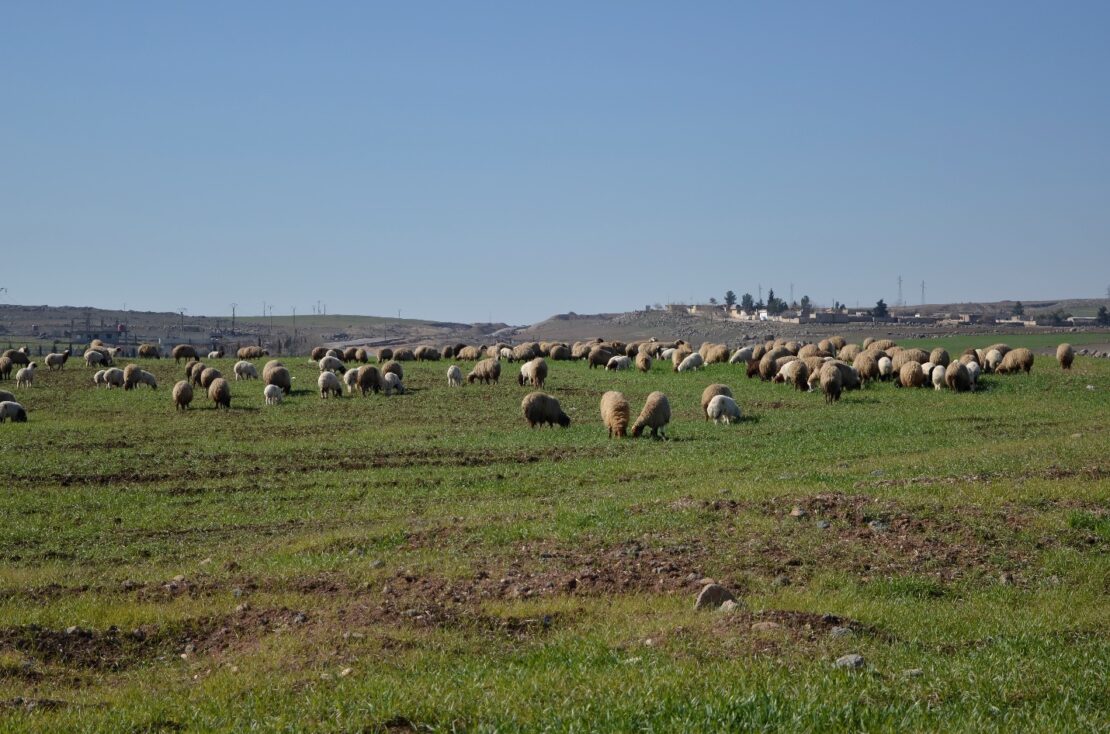
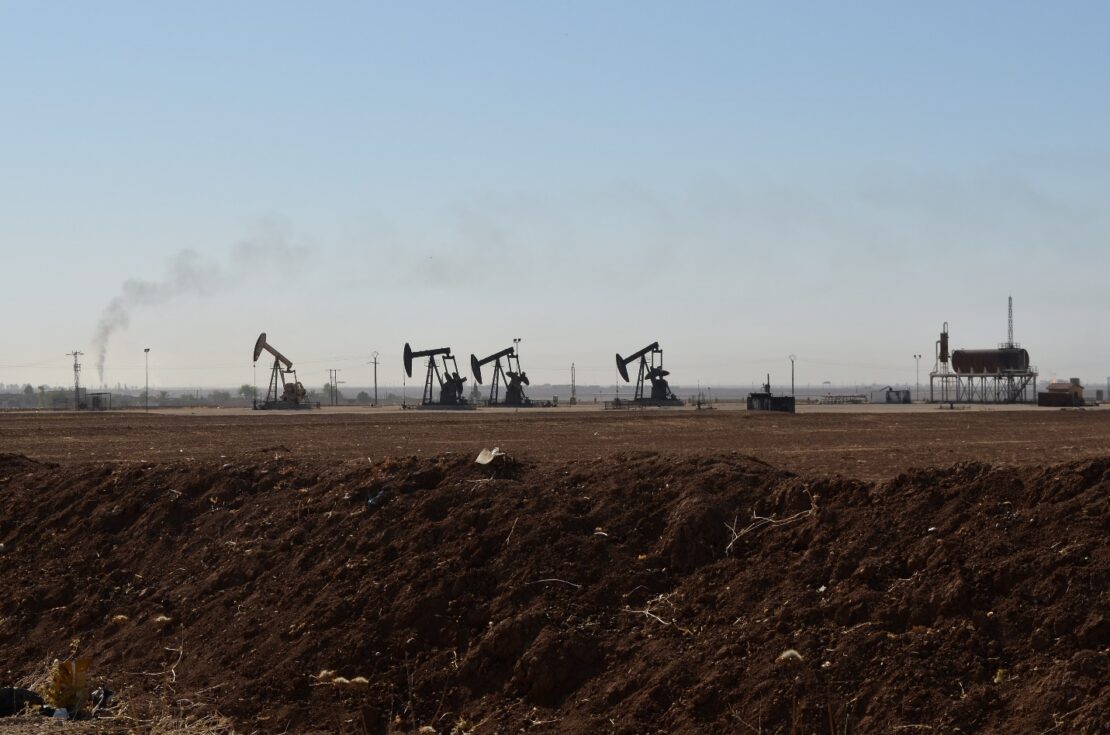
We drove into this landscape for half an hour. The villages we crossed looked like any other in this part of Syria, whether Kurdish or Arab: low-lying mud houses with square windows, dusty streets that blend seamlessly into the surrounding fields, throngs of wandering sheep, a few irrigated wheat fields, and vast stretches of rainfed barley. A harsh, unpredictable environment, where survival sometimes hinges precariously on the whims of nature. A land where a single peregrine falcon can bring fortune to an entire village.
We finally reached our contact’s house, where a group of older men dressed in traditional outfits welcomed us into a sparsely furnished room – a few carpets and mattresses to sit on, photos of falcons on the walls. They brought in three hooded falcons and put the birds on display, lifting them in the air and stretching their wings. It was their way of breaking the thick ice that separated them from us – two odd women wearing Western clothes that has just driven in from the city.
Soon, we were exchanging jokes and stories about birds. Before we left, the men insisted on doing a group photo with their falcons. They seemed happy that we took an interest in them and that we tried to understand what trapping meant to them and their families. They invited us to come back in the fall to film the hunt.
As we left the village behind, mixed feelings overtook me. We were here to document the devastating impact of falcon hunting, to shed light on the expanding scale of this practice. But while I hated the idea of trapping endangered wild birds, I could not hate the trappers, who expressed great respect and affection for the falcons. Given the political neglect that their rural villages had endured for years, I could not blame them either for their naïve vision of falcon-trapping as a harmless practice. This prompted me to wonder whether we were doing enough, as journalists and researchers, to raise awareness about the state of nature among more marginalized groups. But ultimately, I knew that the key here was not awareness. As long as wealthy customers abroad continue to fuel the demand for wild-caught falcons, the birds will be targeted for the dreams they promise to unlock in neglected corners of the world.
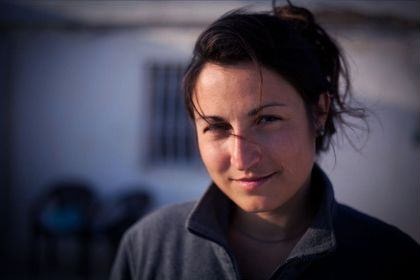
Lyse Mauvais is a freelance journalist based in Erbil, Iraq. She covers environmental and humanitarian issues in Syria, Iraq and Jordan. Her last blog for OSME was in May 2022 : Falcon-trapping in a neglected Syrian displacement camp (osme.org).
